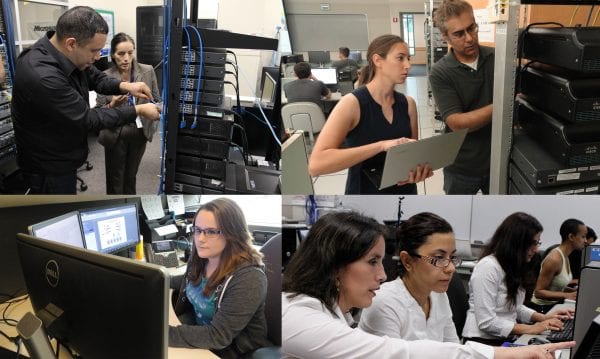How one school addresses the lack of women in technology…

One of the grant goals of the National Convergence Technology Center (CTC) involves the sharing and disseminating of best practices for boosting the inclusion of women in IT programs. A recent Wired magazine article profiled Maria Klawe, president of Harvey Mudd College in Claremont, California, where the number of women in its computer science program has grown.
Here are a few highlights of Klawe’s perspective on the state of education and the tech industry:
* Female job candidates don’t often do well with the aggressive, adversarial nature of many technology job interviews and the “I know more than you” personality of some tech hiring managers. For those who figure these tech companies must know what they’re doing with hiring practices, Klawe believes it’s a mistake to equate the financial success of Google and Facebook and companies like that with their harsh, male-driven workplace culture.
* Women thrived in computer science in the 1970s in part because of a belief that they had superior typing skills and were more careful than men. But the gaming boom in computing in the 1980s soon attracted far more men – who tended to like video games more – and pushed women out.
* If tech companies cannot attract more women and people of color, they won’t be able to fill all of their jobs. There are simply too many positions out there.
* Evidence suggests that when more women join higher education engineering and computer science programs, they not only thrive but end up taking on most of the campus leadership roles.
* Klawe reports a more diverse culture on Harvey Mudd’s campus. When the computer science student body was mostly male, computer science was their whole focus. It was the only culture. But now, Klawe notes that computer science students have other hobbies and interests which further diversifies the perspectives of the student body and, ultimately, the workforce.
* To make women feel more welcome, Harvey Mudd re-framed the introductory computer science course to suggest that hard work and persistence (a well-known “growth mindset” strategy) was key to success, rather than a pre-determined aptitude. The college also added more practical applications to show the value of computer science and what you can do with it, rather than hoping the hard science alone was enough to stir interest. This approach draws more students, not just more women.
* The solutions may seem simple, but changing a culture – whether on a campus or in a company – is hard.
* One corporate success story is Accenture, which hired 40% women last year. They adjusted their job descriptions to focus more on creativity and interpersonal skills and not just technical know-how. That let female applicants know the company valued those traits, which women tend to feel more confident about.
* The future will be one of the “haves” that know the needed skills and the “have-nots” stuck only on the skills that are no longer needed because of things like automation. Klawe believes it’s essential to make sure those future-facing skills are learned by everyone, including women and people of color. She wants as large a percentage of the population as is possible to have the chance to work.
